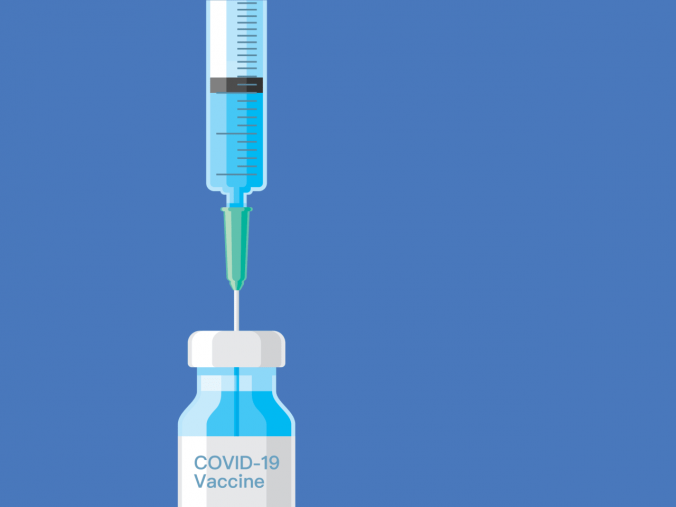Rules change quickly in the pandemic and the past week in Victoria has been no exception. As we discussed in our previous article on vaccination mandates, new rules have come into force requiring many different workers to be vaccinated against COVID-19 (Covid).
At 11:59pm on 7 October the Chief Health Officer issued updated Mandatory Vaccination (Specified Facilities) Directions which require operators (i.e. employers) of certain workplaces to ensure their employees are vaccinated by certain dates. The directions also require operators to ‘collect, record and hold’ vaccination information from employees. The obligations and timelines referred to in our previous article above are still accurate as at 12 October 2021.
In addition to the previous directions, at 11:59pm on 7 October the Chief Health Officer issued Mandatory Vaccination (Worker) Directions that require an extensive list of workers to be vaccinated against Covid. These directions impose the same obligation on employers of the captured workers to ‘collect, record and hold’ vaccination information and to prevent unvaccinated workers from working at many facilities by certain dates. The vaccination information required to be shared with employers is as follows:
- Evidence of an appointment made by the employee to receive a 1st and 2nd dose of a Covid vaccine prior to the respective deadlines;
- Evidence of partial vaccination (i.e. 1 dose of a Covid vaccine received) and full vaccination by way of a letter from a medical practitioner or an official immunisation certificate.
At the end of this article, we have included a a list of workers covered by the directions and the dates by which they must be vaccinated against Covid. This article provides an overview of the legal status of the mandates, and the applicability of other legislation such as the Australian Privacy Act 1988 (Cth) (Privacy Act) and the Equal Opportunity Act 2010 (Vic) (Equal Opportunity Act).
Legal status of directions:
There has been chatter on the internet about the legality and enforceability of the directions, however our analysis is that the directions are legal and enforceable.
Since 16 March 2020, when a state of emergency was first declared in Victoria, the Chief Health Officer (CHO) has been granted emergency powers under Section 200(1)(d) of the Public Health and Wellbeing Act 2008. This provision gives the authorised officer (such as the CHO) discretion to make any direction reasonably necessary to protect public health in a state of emergency. The mandatory vaccination directions have been made using these powers. Section 203 and 210 of the Public Health and Wellbeing Act 2008 makes it an offence to not comply with any such direction. The maximum penalties for a person not complying with these directions are:
- 120 penalty units per offence for non-compliance, which equals $21,808.80 per offence; and
- 60 penalty units per offence for providing false or misleading information, which equals $10,904.40 per offence.
The maximum penalties for a company not complying with these directions are:
- 600 penalty units per offence for non-compliance, which equals $109,044 per offence; and
- 300 penalty units per offence for providing false or misleading information, which equals $54,522 per offence.
We strongly advise that any person or company covered by the directions comply with the requirements therein.
Privacy Act
There have been some questions asked about whether the vaccination mandate will cause employers to breach Australian privacy law. Vaccination information is considered “sensitive information” under the Privacy Act 1988. Pursuant to Schedule 1 Part 2 of the Privacy Act, an organisation may only collect sensitive information about a person with the person’s consent. However, this requirement does not apply if the collection of information is required by Australian law. As the vaccination mandates are law, an employer can require an employee to provide the vaccination information, even if the employee does not agree to do so.
The Office of the Australian Information Commissioner, which oversees privacy rights in Australia, has published commentary which supports the conclusion that employers can require employees to provide vaccination information if required by a public health direction. Requiring employees to provide the vaccination information mandated under the vaccination mandates is therefore not a breach of the Privacy Act.
Equal Opportunity Act
There have also been arguments put forward that preventing an employee from working unless they comply with the vaccination mandates breach the Equal Opportunity Act 2010. The Equal Opportunity Act provides a list of ‘protected attributes’ that an employer is prohibited from discriminating against, such as sex, marital status, religious belief and race. There are only limited instances where vaccination status could be protected under the Act, for example if a person cannot be vaccinated due to a certain medical condition or disability (such exemptions, however, are already dealt with by the vaccination mandates).
Even if vaccination status was protected, the Equal Opportunity Act will has exemptions where “discrimination” is reasonably necessary to protect the health and safety of a person or the public generally. In particular, public health considerations will be prioritised where other protected attributes such as political or religious beliefs may be impacted. It is therefore highly unlikely that the vaccination mandate would be considered discrimination.
Summary
The mandatory vaccination directions will require employers of captured workers to ensure that they are vaccinated against Covid very soon. Whilst the obligations imposed on businesses are very onerous, the key takeaways are:
- The emergency powers granted in a state of emergency make all health directions issued by the CHO legally enforceable. The directions do not contravene Australian privacy law or equal opportunity law.
- Workers captured by the mandatory vaccination directions need to ensure that they are vaccinated against Covid by the first and second dose deadlines set out below.
- Employers will need to collect, record and hold vaccination information of employees by asking for evidence of appointments for first and second dose Covid vaccinations by unvaccinated and partially vaccinated workers and evidence of vaccination after each dose of a Covid Vaccine.
- Non-compliance with the vaccination mandate can expose body corporates and individuals to significant fines.
Need help? Contact us
At Allied Legal, we make sure to stay up to date with the latest laws, regulations and policies in response to the COVID-19 pandemic. If you need help understanding how COVID-19 laws will impact your business, you can call us on 03 8691 3111 or send us an email at hello@alliedlegal.com.au
You might also like our article Leveraging Your Startup’s Strategic Agility in A Crisis
Captured Workers and Vaccination Deadlines:*
| Worker | Relevant Date | First Dose Deadline | Second Dose Deadline |
| accommodation worker | 15 October 2021 | 22 October 2021 | 26 November 2021 |
| agricultural and forestry worker | 15 October 2021 | 22 October 2021 | 26 November 2021 |
| airport worker | 15 October 2021 | 22 October 2021 | 26 November 2021 |
| ancillary, support and welfare worker | 15 October 2021 | 22 October 2021 | 26 November 2021 |
| Authorised Officer | 15 October 2021 | 22 October 2021 | 26 November 2021 |
| care worker | 15 October 2021 | 22 October 2021 | 26 November 2021 |
| community worker | 15 October 2021 | 22 October 2021 | 26 November 2021 |
| creative arts worker | 15 October 2021 | 22 October 2021 | 26 November 2021 |
| custodial worker | 15 October 2021 | 22 October 2021 | 26 November 2021 |
| emergency service worker | 15 October 2021 | 22 October 2021 | 26 November 2021 |
| entertainment and function worker | 15 October 2021 | 22 October 2021 | 26 November 2021 |
| funeral worker | 15 October 2021 | 22 October 2021 | 26 November 2021 |
| higher education worker | 15 October 2021 | 22 October 2021 | 26 November 2021 |
| justice service centre worker | 15 October 2021 | 22 October 2021 | 26 November 2021 |
| manufacturing worker | 15 October 2021 | 22 October 2021 | 26 November 2021 |
| marriage celebrant | 15 October 2021 | 22 October 2021 | 26 November 2021 |
| meat and seafood processing worker | 15 October 2021 | 22 October 2021 | 26 November 2021 |
| media and film production worker | 15 October 2021 | 22 October 2021 | 26 November 2021 |
| mining worker | 15 October 2021 | 22 October 2021 | 26 November 2021 |
| physical recreation worker | 15 October 2021 | 22 October 2021 | 26 November 2021 |
| port or freight worker | 15 October 2021 | 22 October 2021 | 26 November 2021 |
| production and distribution worker | 15 October 2021 | 22 October 2021 | 26 November 2021 |
| professional sports, high performance sports or racing person | 15 October 2021 | 22 October 2021 | 26 November 2021 |
| professional services worker | 15 October 2021 | 22 October 2021 | 26 November 2021 |
| public sector employee | 15 October 2021 | 22 October 2021 | 26 November 2021 |
| real estate worker | 15 October 2021 | 22 October 2021 | 26 November 2021 |
| religious worker | 15 October 2021 | 22 October 2021 | 26 November 2021 |
| repair and maintenance worker | 15 October 2021 | 22 October 2021 | 26 November 2021 |
| retail worker | 15 October 2021 | 22 October 2021 | 26 November 2021 |
| science and technology worker | 15 October 2021 | 22 October 2021 | 26 November 2021 |
| social and community service worker | 15 October 2021 | 22 October 2021 | 26 November 2021 |
| transport worker | 15 October 2021 | 22 October 2021 | 26 November 2021 |
| utility and urban worker | 15 October 2021 | 22 October 2021 | 26 November 2021 |
| veterinary and pet/animal care worker | 15 October 2021 | 22 October 2021 | 26 November 2021 |
*The ‘Relevant Date’ column refers to the date by which workers need to demonstrate that they have made a booking to receive a first dose of a Covid vaccine. For more specific information regarding what each type of worker means, please see the ‘Worker-specific definitions’ at Clause 9 of the directions.






